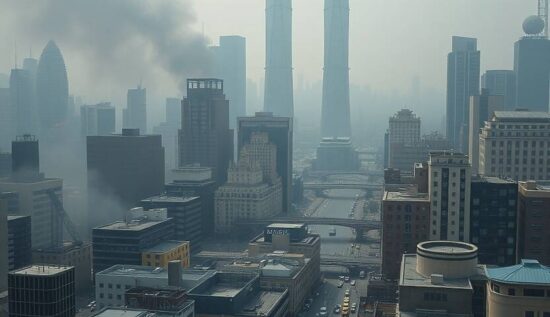Russia Cuts Off Gas Supplies to EU via Ukraine on New Year’s Day, Ending Decades of Transit Deal
Russia has officially cut off gas supplies to the European Union through Ukraine, effective January 1, 2025, after months of negotiations over a transit agreement with Kiev failed to produce a result. The move has significant implications for the European gas market, and the region’s energy security.
The transit agreement, signed in 2019, allowed Russia’s Gazprom to transport gas through Ukraine’s pipeline network. The deal expired on December 31, and Ukraine has refused to extend it, citing the ongoing conflict with Russia. Ukraine’s Prime Minister, Denis Schmygal, confirmed that the country would no longer transport Russian gas and would instead use its pipeline system for gas from alternative suppliers.
Gazprom stated that it had already stopped gas deliveries through Ukraine, citing the repeated and clear refusal of Kiev to extend the transit agreement. Russian President Vladimir Putin said that Ukraine’s decision would “punish” the EU by leading to higher energy prices.
The impact of the cut-off will be most severe for the Czech Republic, which relies heavily on Russian gas imports through Ukraine. Moldova, a former Soviet republic and EU candidate country, may also be significantly affected, as it relies on a Russian gas-powered power plant for a significant portion of its electricity.
Russia exports gas to the EU not only through the Ukrainian pipeline, but also through the TurkStream pipeline, which transports gas from Russia to Turkey and then to Greece. The EU has been diversifying its energy sources, increasing imports of pipeline gas from Norway and LNG from Qatar and the US. However, these alternative sources are more expensive than Russian pipeline gas.
Experts warn that the loss of gas transit through Ukraine could lead to a new surge in energy prices across the EU, with the potential to increase gas prices by as much as 30%, resulting in additional annual costs of €40-50 billion for European households and infrastructure.
There is currently no clear solution to the crisis, with Russia and Ukraine at a stalemate over the transit agreement. The EU may consider signing a deal between Gazprom Export and a European energy company to buy gas at the Russian-Ukrainian border, transport it to the EU, and pay the Ukrainian gas network operator for the transit, but no official confirmation or progress has been reported on such talks.





